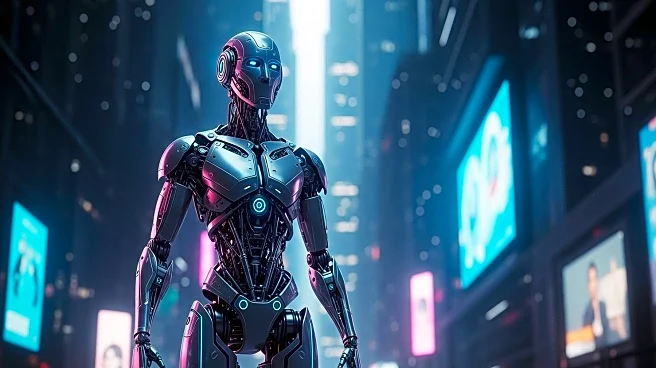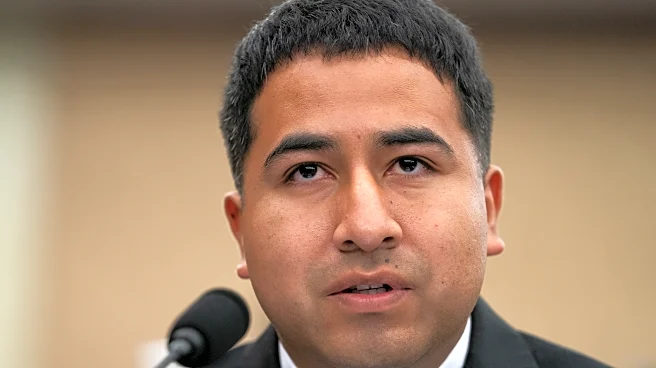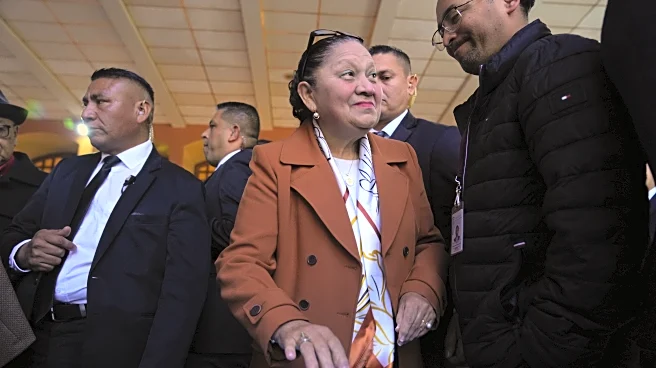What's Happening?
Gore Verbinski's new film, 'Good Luck, Have Fun, Don't Die,' presents a satirical yet chilling take on the implications of artificial intelligence (AI) in modern society. The film, which premiered at the 2025 Fantastic Fest Film Festival and is set for a U.S. theatrical release on January 30, 2026, features Sam Rockwell as a time-traveling protagonist. His mission is to install safety programming into an AI model created by a young genius. The narrative unfolds in a Los Angeles diner, where Rockwell's character attempts to recruit a diverse group of strangers to form a superteam. The film critiques society's fixation on technology, portraying a world where humans are consumed by digital devices, and AI's potential dangers are highlighted through a blend of humor and dark commentary.
Why It's Important?
The film's exploration of AI's role in society is significant as it reflects growing concerns about technology's pervasive influence. By depicting a world where AI and digital devices dominate, the film raises questions about the ethical and societal implications of unchecked technological advancement. It underscores the need for responsible AI development and regulation, echoing real-world debates about AI's impact on privacy, employment, and human interaction. The film's portrayal of a society numbed by technology serves as a cautionary tale, urging viewers to consider the balance between innovation and its potential consequences.
What's Next?
As 'Good Luck, Have Fun, Don't Die' approaches its release, it is likely to spark discussions among audiences and critics about the future of AI and its regulation. The film may influence public opinion and policy debates, encouraging stakeholders to address the ethical challenges posed by AI. Additionally, the film's unique narrative and satirical approach could inspire other filmmakers to explore similar themes, contributing to a broader cultural conversation about technology's role in society.
Beyond the Headlines
The film delves into deeper themes of human dependency on technology and the societal shifts it causes. It questions the loss of critical thinking and personal connections in a world dominated by digital interactions. By presenting a dystopian vision of AI's future, the film challenges viewers to reflect on their relationship with technology and consider the long-term cultural and ethical implications of living in a tech-driven world.










![Cortisol vs. Melatonin: The Biological War Happening Inside Every Night-Shift Worker]](https://glance-mob.glance-cdn.com/public/cardpress/binge-magazine-card-generation/spaces/US/en/discover-daily/images/ppid_7byehtbd-image-177082393426031154.webp)